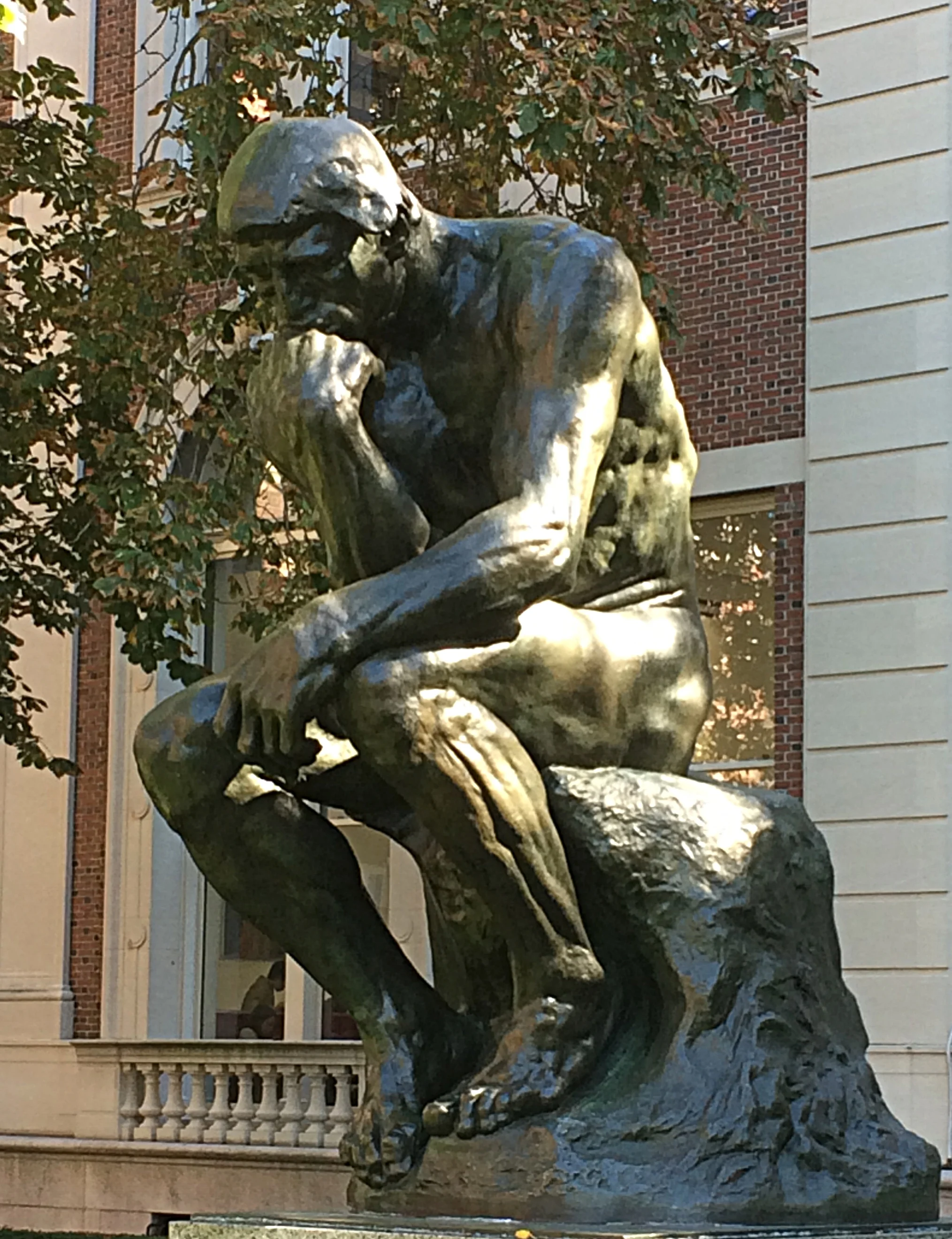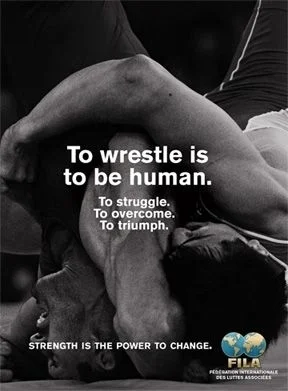Wrestle Like an Animal
Photo Credit: Paul Keates
I knew what they meant from a young age. The context of wrestling helped me understand it. “That guy is an animal”, I heard my coaches, my dad, fans, and other wrestlers say. Calling someone an animal, at least in wrestling, is a complement. This complement can come with a preface like “that guy trains like an animal” or “that guy competes like an animal”. We regularly hear and repeat this term without fully understanding or acknowledging how accurate and literal it really is. More than describing a great performance or an unrelenting athlete, this term provides one of the best descriptions of the very specific, very powerful state embodied by high-performing individuals.
The state itself does not occur in the mindset most of us maintain in everyday life. Our typical mindset has become so default that we forget there is another mode of action available to us. The mode we commonly exist in is one that maintains a heavy awareness of past, future, structure, personal individuality and self-analysis. We operate the majority of the time in a very conscious, self-aware state, constantly planning the future or critiquing the past.
“That guy is an animal” is a mindset based on spontaneity, instincts and un-self-consciousness. I would like no more than to provide a concrete description of this transcendent, metaphysical state. Unfortunately, I don’t believe there is one. it is more important to note that we have all experienced this state through one medium or another and, that having the experience provides a more complete description than our language ever could. Accepting that language is insufficient in describing not only this state of mind but many experiences we have throughout our lives is an important notion. Without a general awareness of this concept, there will always be a broken link between our understanding and any form of abstract, metaphysical or spiritual thought.
“That guy is an animal” is an excellent description of a state that is impossible to perfectly describe though, as with any attempt for language to describe reality, there is room for misunderstanding to occur. It is important to understand that the animal state I am referring to does not imply extreme aggression, it implies an appropriateness of spontaneity, tact, focus, willpower and trust in your instinct. There is a large misconception in wrestling, especially from those who have never wrestled or who perceive the sport to be something that it is not. This misconception leads some to believe that anger and excessive aggression lead to optimal performance.
Dads screaming from the corner of the gym, the edge of the wrestling mat or the top of the bleachers are as common as ringworm at youth and high school tournaments. Their characteristics are predictable; veins bulging in their foreheads, tension overwhelming their every movement, exclaiming to their struggling son that he needs to GET MAD! or GET MEAN!
Extreme aggression implies, to me, a very abrasive, frustrating and resistive experience - one that does not align with the experience top performers describe themselves to have during their competitions and training. Top performers across many disciplines from sports to chess to social gatherings describe themselves as feeling light, flowy, spontaneous and loose. These top performers describe the experience as something that seems to be falling into place one moment after another in an almost effortless manner, rather than them forcedly controlling each movement or situation.
This experience comes from a state well known in our western society as flow state. In this state humans (and animals) encounter a biological process termed hypofrontality. When this occurs, the body slows blood flow to the prefrontal cortex which is the part of the brain in charge of executive function. Activities of all types, from chess to bungee jumping, can induce flow states - though exercise is especially helpful at triggering hypofrontality. The prefrontal cortex maintains a strong sense of time, it decides what is good, bad, better, best. It is in charge of prediction of outcomes, creating personality, and developing expectations. It creates our self-awareness, giving us the perspective of who we are and how we are viewed by others.
When the body and mind reduce blood flow to the prefrontal cortex, we are essentially taken off-line from the way of thinking that appears to separate us from animals since the prefrontal cortex of humans is significantly more developed than that of animals. This is why animals have a much weaker, if any, sense of; time, future, past, or individual self. Instead they reside primarily in the present moment. They do not discriminate their experiences into categories of “good”, “bad” or otherwise. They simply move on to the next moment in time. Animals contemplate far less than us humans. When hungry they eat, when tired they sleep. Most animals have such a weak sense of self that they jump at the sight of their own shadow or mirrored reflection. They do not consider how others are perceiving their every move as many humans do. The chronic, in depth calculation of options, and assignment of judgements is human trait embraced by humans.
Relying on one’s instinct to navigate through something as complex as a wrestling match or a public speech may seem like a bad idea. How is one supposed to take produce the proper response if not by forcedly deciding their actions beforehand? Ivan Pavlov proved that dogs can learn to salivate to the sound of a dinner bell, even without the self-awareness that they have learned a new behavior. Learning outside of our direct awareness happens in wrestling, sports and life all the time. It does not require a deliberate decision. Just as passive reading can increase our vocabulary, we can increase our awareness of an opponent’s setups throughout the course of a wrestling match.
Many of us have developed our wrestling instincts for the last decade, maybe two. Right instincts are inside most all of us who have trained for thousands of hours. Just as Pavlov’s dogs salivated to the sound of a dinner bell, we can release our best instincts to the sound of a referee’s whistle. When he shoots, you sprawl, no hesitation, no contemplation. Your instincts and spontaneous reactions are what constitute your ability to create your best match. Of course, some of these reactions may need adjustment and work, and for that reason there will always be a massive role for dedicated practice and training. But, when we compete, we can compete like animals.
To “wrestle like an animal” means to move with each moment, flowing in a non-resistant way right into the next moment, the next action. We continue the flow of things, eliminating the need for a break in order to discriminate between a “good” or “bad” event that just arose. When you wrestle like an animal, time may slow down, self-talk mutes, self-consciousness fades into the background, even pain, fatigue and exhaustion can become a mere afterthought when you are so focused on what is happening in this moment, that there is no time for judgement, and maybe, no time at all. Animals have never decided that fatigue is bad, so when it hits them, they continue on, without contemplation or self doubt.
We can allow the deep reservoir of instincts in us to flow, but we must forget the thought of ourselves since, we cannot simultaneously be ourselves and be perceiving ourselves. As eastern philosopher Alan Watts wrote:
"A man rings like a cracked bell when he thinks and acts with a split mind… The illusion of this split comes from the mind’s attempt to be both itself and its idea of itself, from a fatal confusion of fact with symbol.
To make an end of the illusion, the mind must stop trying to act upon itself, upon its stream of experiences, from the standpoint of the idea of itself which we call the ego."
-The Way of Zen
The ego Watts is referring to is what keeps us from reaching our optimal state. The ego labels our experiences as good or bad. It is afraid of loss, and of other’s perceptions. It slows the lightning quick process of turning instincts into action by adding hesitation and contemplation to the supply chain.
Wrestling when your mind is contemplative is a lot like reading while your mind is wandering. Everyone has experienced this. Sitting there reading, you suddenly realize you have read the entire page or chapter without being engaged in any of it. You were there reading but your mind was split, and hence, ineffective. When you read successfully, you just flow through, one word at a time, not jumping ahead or getting stuck on the previous thought. You simply let yourself absorb each word as it comes, and in the end, you fully understand the concepts, themes and stories. When you read, read. When you wrestle, wrestle.
Joe Nord





